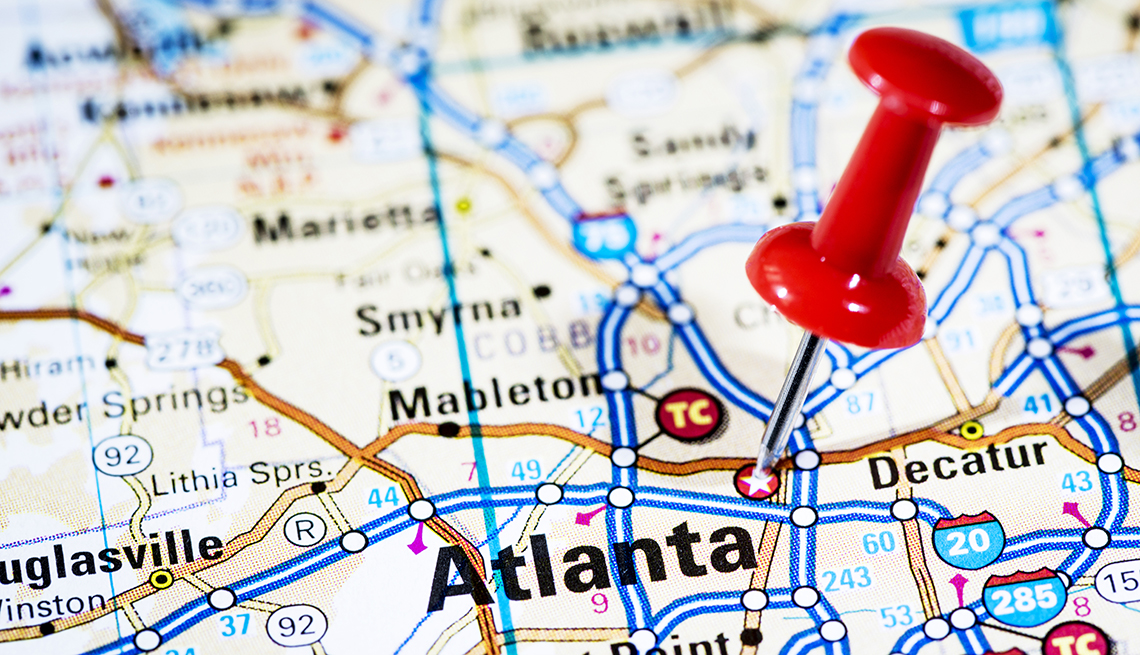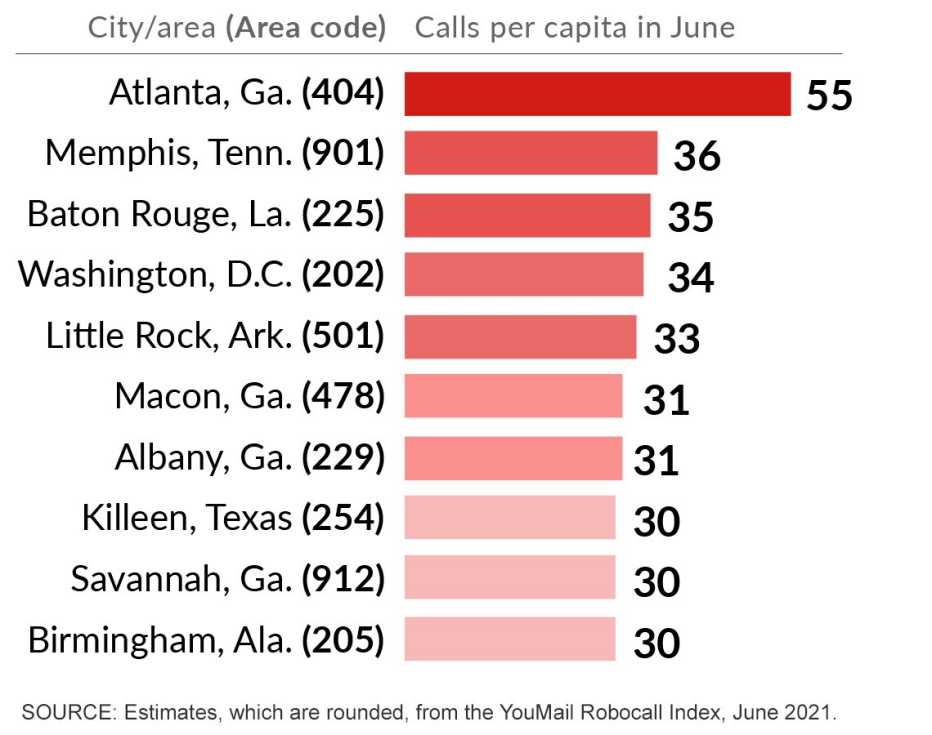Staying Fit
Robocall volume jumped in June, with Americans receiving 4.4 billion calls that were either scams or telemarketing pitches, an industry estimate says. That's an earful: an average of 13.5 robocalls calls for every man, woman and child in the U.S. For some, the annoyance factor leapt as they were bombarded by even more nuisance calls. Phone numbers in the top 10 area codes received on average at least one scam or telemarketing call every single day of the month.
The estimates are from YouMail, a California-based robocall-blocking company that tallies robocalls, where they go and what they try to persuade consumers to do, such as renew a car warranty.


AARP Membership— $12 for your first year when you sign up for Automatic Renewal
Get instant access to members-only products and hundreds of discounts, a free second membership, and a subscription to AARP the Magazine.
Atlanta area is No. 1
The Atlanta region had the unhappy distinction of having the top area code for robocalls per capita; numbers in area code 404 were bombarded with an average of 55 robocalls in June. The Memphis, Tennessee, region (area code 901) was second, and the Baton Rouge, Louisiana, area (225) third.
Alex Quilici, YouMail's CEO, says some of his firm's 10 million customers report getting upwards of 100 robocalls a month.
Josh Harmon, who lives in Midtown Atlanta, says he gets at least three robocalls a day. The deluge — especially for car warranties — has been going on for more than a year.
"It's definitely annoying,” says Harmon, 33. And it's not just the interruption that's irritating, since he feels like avoiding robocalls sometimes makes him miss legitimate phone calls. “I'm less inclined to even want to answer my phone at all, especially if it's a number I don't recognize."
On the rare occasion Harmon is expecting a call from a number not in his contacts and he does pick up, “9 out of 10 times it's always a robocall.”
Faridah Somani, 50, lives in Atlanta's northern suburbs where her 770 area code gets far fewer robocalls than 404 does. Still, she and her husband between them get a car warranty call about every other day, and those irritations have grown since they bought a car for their daughter.
Somani, who works for the federal government, signed up for the National Do Not Call Registry years ago — a list bad actors ignore. When she gets a call from number she does not recognize, she doesn't answer. “If it's something urgent they will leave a message,” she reasons. From her government work she knows to ignore the crooks who pretend they work for the Social Security Administration or Internal Revenue Service. When the federal government needs to contact you, “we send you a letter,” Somani says.
Robocalls on the rise
Nationally, robocalls were up 11 percent from May's nearly 4 billion calls, which Quilici attributes to call centers in India reopening after COVID-19 lockdowns. While robocalls are automated, scammers need a person on hand if a call recipient, when asked, presses “1” or another number.





































































